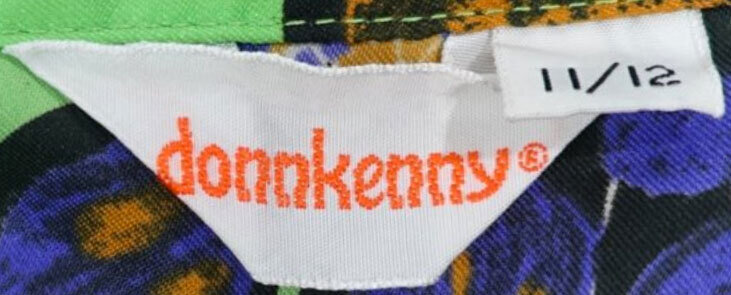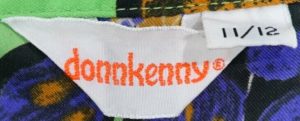Donnkenny began as Nadler Sportswear in 1934, based in New York City’s garment district – they were a blouse manufacturer. After WW2, they became Donnkenny and began making other sportswear items. By the mid 1960s, they were producing a complete line of moderately priced women’s apparel, with a special focus on casual wear, all under the Donnkenny label. They expanded over the next 10+ years, adding other lines like Dunwoodie, Donnypress, Xtrovert, R.B.K., Kenny Classics, Melray, and Durbin. In 1978, the company was taken over by a private investment firm. By 1993, when Donnkenny went public, its best selling line was Mickey & Co., with Disney-licensed clothing for men, women and children. It was also producing sleepwear and intimate apparel with cartoon characters under the Warner Brothers/Looney Tunes label for Lewis Frimel. Over the next several years, the company produced a diffusion line for designer Arnold Scaasi, and a natural fiber line under the J.G. Hook label. They acquired Beldoch, who held the license for all Pierre Cardin women’s wear in the U.S. as well as Oak Hill sportswear labels: Victoria Jones and Casey & Max. As of the mid-1990s, Donnkenny was still making about half their products in the U.S., primarily in Virginia and New York, with the remainder produced in China, India, Guatemala, Turkey, and Bangladesh. In 1996, Donnkenny’s CEO was charged with inflating the company’s earnings by more than 100% to keep up with Wall Street expectations, and ultimately pled guilty to conspiring to commit securities, Donnkenny continued to struggle, and in 2005, they filed Chapter 11 bankruptcy – their assets, which by that time included Nicole Miller sportswear, were acquired by a company called Pacific Alliance.
Written by MagsRags Vintage

